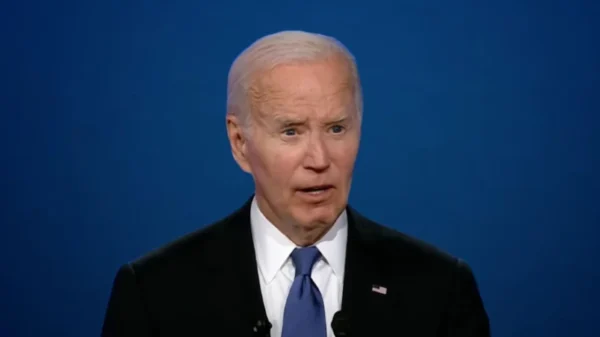The White House is urging the Senate to use the coming lame duck session to pass Amy Klobuchar’s Big Tech antitrust bill, described by the Minnesota senator and adoring commentators alike as “sweeping.”
And it is sweeping.
With its mandate for tech companies to be fully “interoperable,” the Klobuchar bill would sweep the private data of American consumers, businesses, and government into the hands of hundreds of foreign companies. It would sweep the executives of large social media companies further into the thrall of progressivism by giving regulators the ability to threaten them with death-penalty fines over vague transgressions. And it would sweep non-tech companies, from banks to grocers, into its severe regulatory purview as these businesses grow in equity value and digital subscribers.
In the razor-thin balance of the coming 118th Congress, however, the path to passage for “sweeping” legislation will be treacherous and narrow. To borrow a phrase, Congress over the next two years will be where sweeping goes to die.
Business leaders might be tempted to believe, then, that they’ve dodged a bullet. After all, where else can antitrust policy go?
In most administrations, antitrust doesn’t have to go anywhere. It usually steams along like an ocean liner, navigating by the North Star of consumer welfare. But in the Biden administration, antitrust is a cigarette boat meant to propel us to a progressive world where business is dominated by government. Biden, and his Federal Trade Commission Chair Lina Khan, have shown time and again a determination to use antitrust enforcement as an excuse to regulate most of the economy, as well as to shift blame for inflation or wage stagnation from administration policy to evil, monopolistic corporations.
Early in his administration, President Biden kicked off his antitrust agenda by issuing 72 orders to a dozen agencies to find cause for antitrust actions against industries ranging from agriculture to pharmaceuticals, to manufacturing. President Biden, armed with a pen (for executive orders) and a phone (to browbeat civil servants), can be expected to double down on his 72 orders over the next two years.
In this new political environment, Lina Khan will play the leading role as the administration’s chief enforcer of the new antitrust regime. Khan upends long-standing convictions, such as holding vertical mergers to be benign. She launches investigations and lawsuits that may go nowhere in the courts for now – until Khan finds the right judge – but serve the purpose of keeping business in the thrall of progressive Washington.
Under Khan, for example, the FTC has hit Amazon with a blizzard of civil subpoenas and repeated demands for senior Amazon leaders to subject themselves to investigative hearings. Amazon voiced objections quietly shared by many companies targeted by the FTC. Amazon accused FTC of seeking testimony on “an open-ended list of topics” on which Amazon leaders have “no unique knowledge” in a way that “is grossly unreasonable, unduly burdensome, and calculated to serve no purpose than to harass Amazon’s highest-ranking executives and disrupt its business operations.”
Such meritless harassment of business may seem pointless. But harassing business has a point – to keep executives on a short lease held by progressive government. If Khan succeeds in cowing a giant like Amazon, she can dominate everyone else.
To increase her leverage over business, Khan weaponized an agency famous for its bipartisan, internal culture of debate. The FTC is now a one-woman show. FTC has long been famous for its spirit of debate and intellectual ferment. All significant decision-making has been brought under the control of the Office of the Chair. Policies long subject to notice and comment are altered or rescinded with little or no internal or external input.
FTC experts were once highly prized as speakers at economic and business forums. These interactions informed business on how to conform to regulations and gave real-world insights to regulators. One of Khan’s first acts was to forbid FTC staff from attending outside events.
FTC Commissioner Christine Wilson says: “Under Chair Khan, morale has plummeted, and we have seen an exodus of experienced lawyers and economists. The FTC may take a generation to recover from this loss of institutional knowledge.” FTC employees for years responded to Office of Personnel Management surveys by giving it the highest ratings. That same survey now gives the FTC, and Chair Khan, the lowest marks among government agencies for lacking “high standards of honesty and integrity.”
What’s behind these impulses? In a word: power. Commissioner Wilson describes these policies as being driven by a toxic mix of Marxism and critical legal theory✎ EditSign. The FTC majority, she writes, sees law the way Karl Marx described it – not as a neutral arbiter, but as a weaponized instrument of raw political power.
Despite the gridlock in Congress, American businesses face a long, grueling two years.
Robert H. Bork Jr. is president of the Antitrust Education Project. This article was originally published by RealClearPolitics and made available via RealClearWire.


















